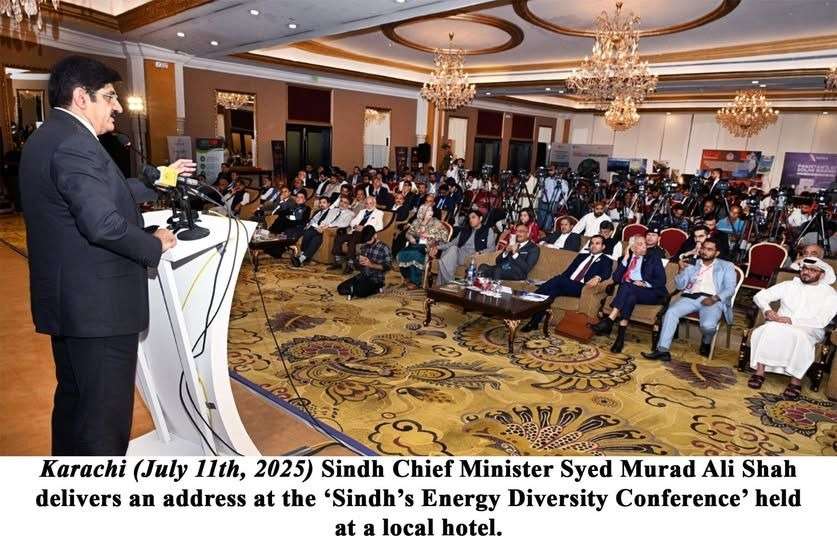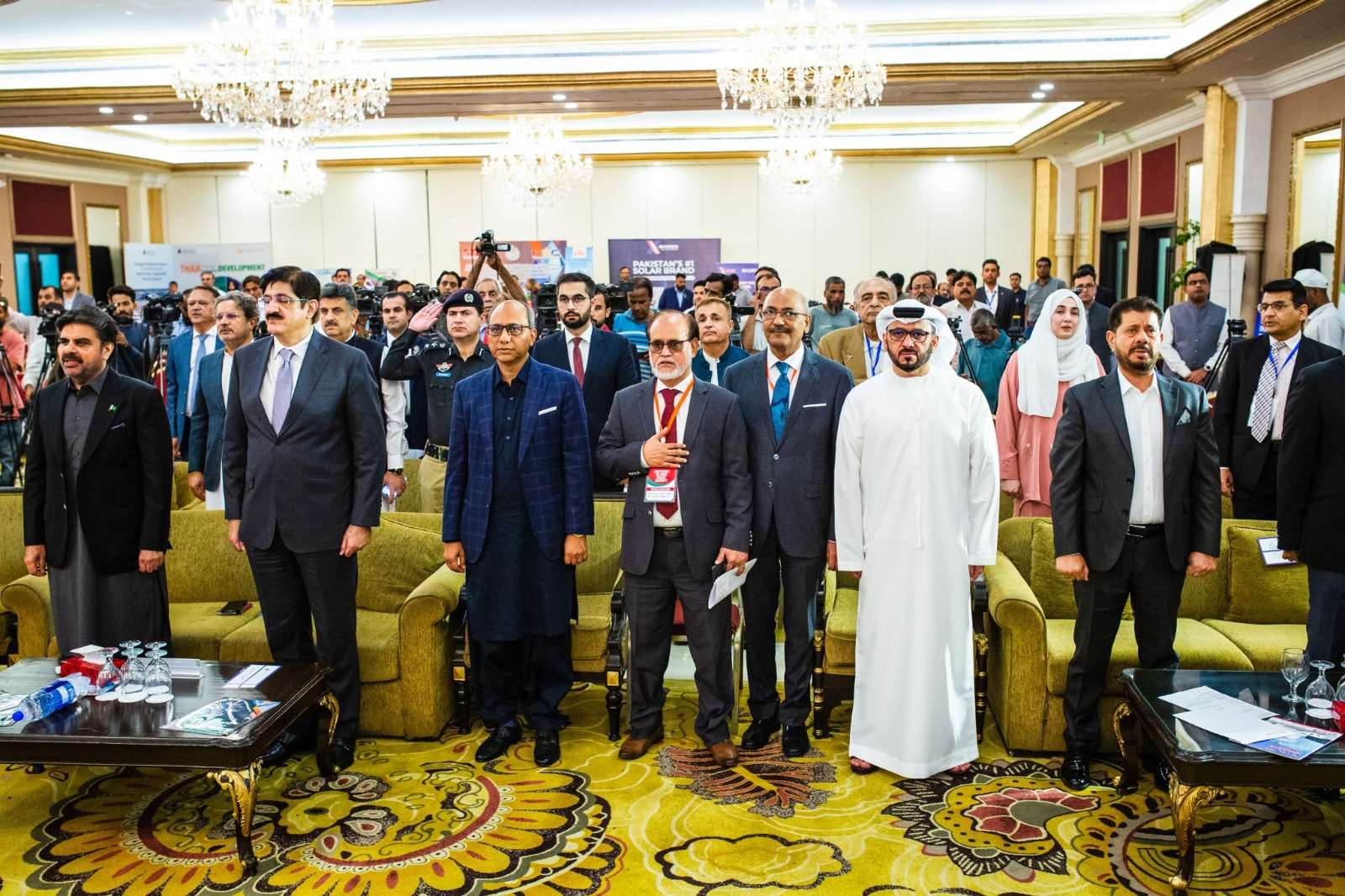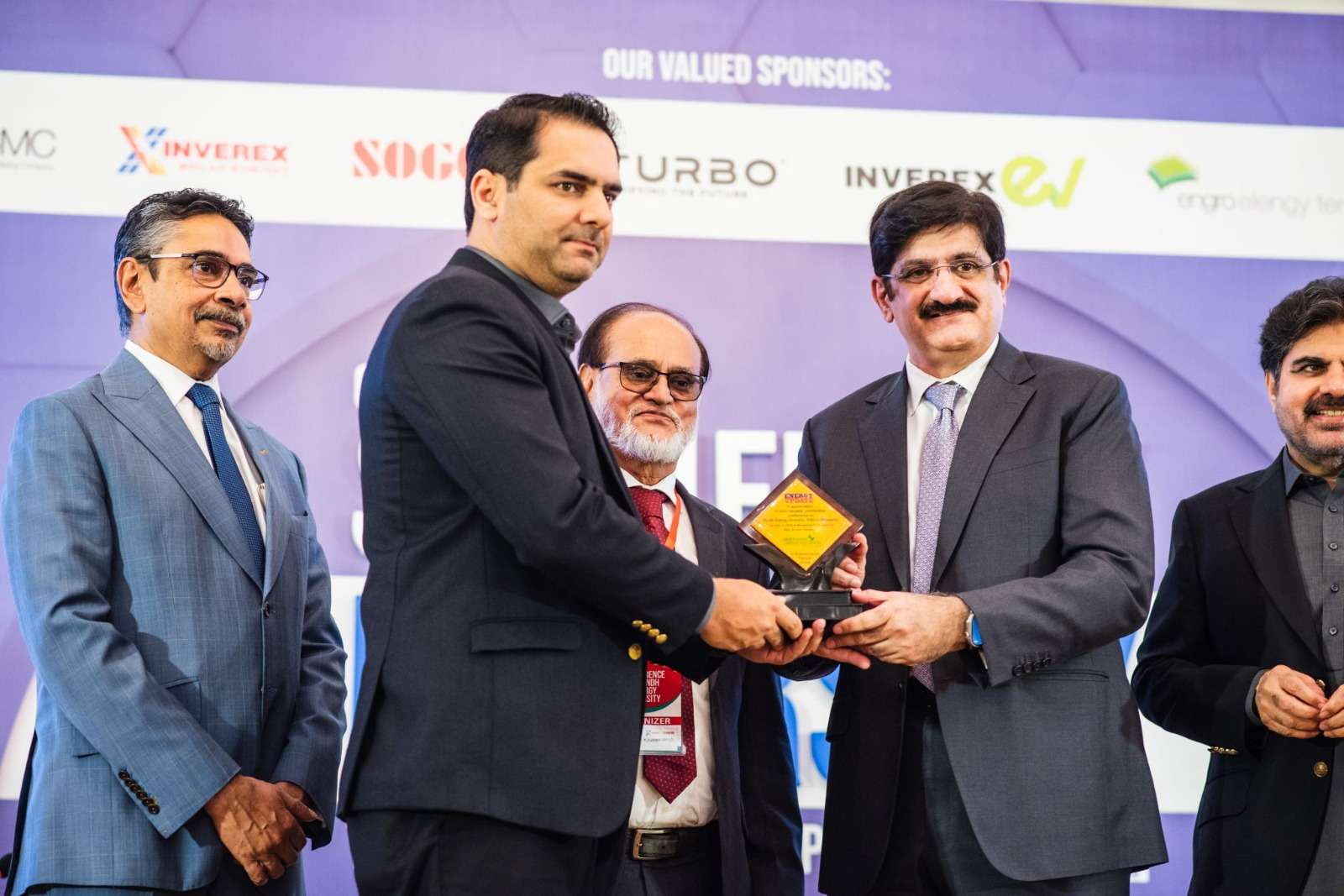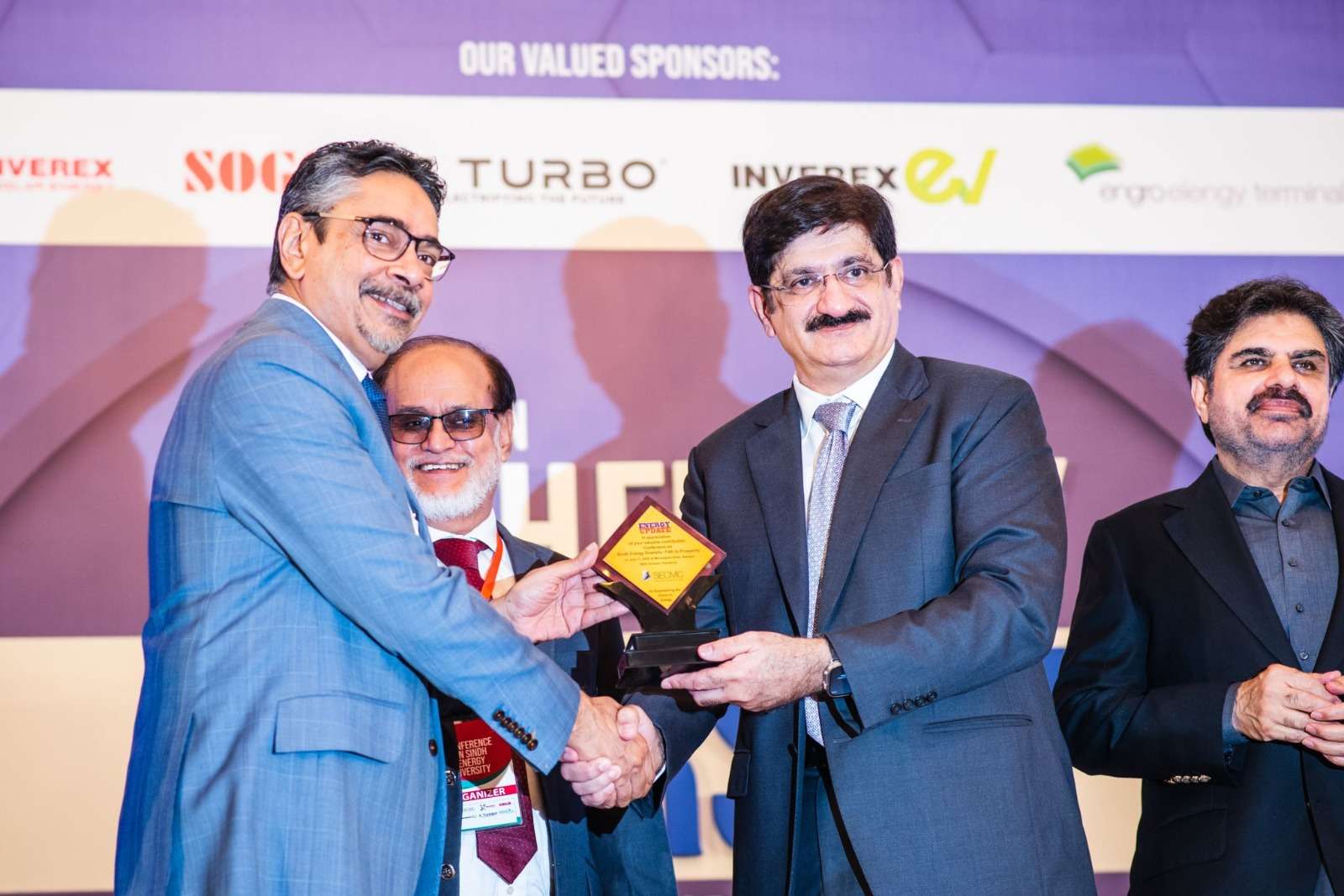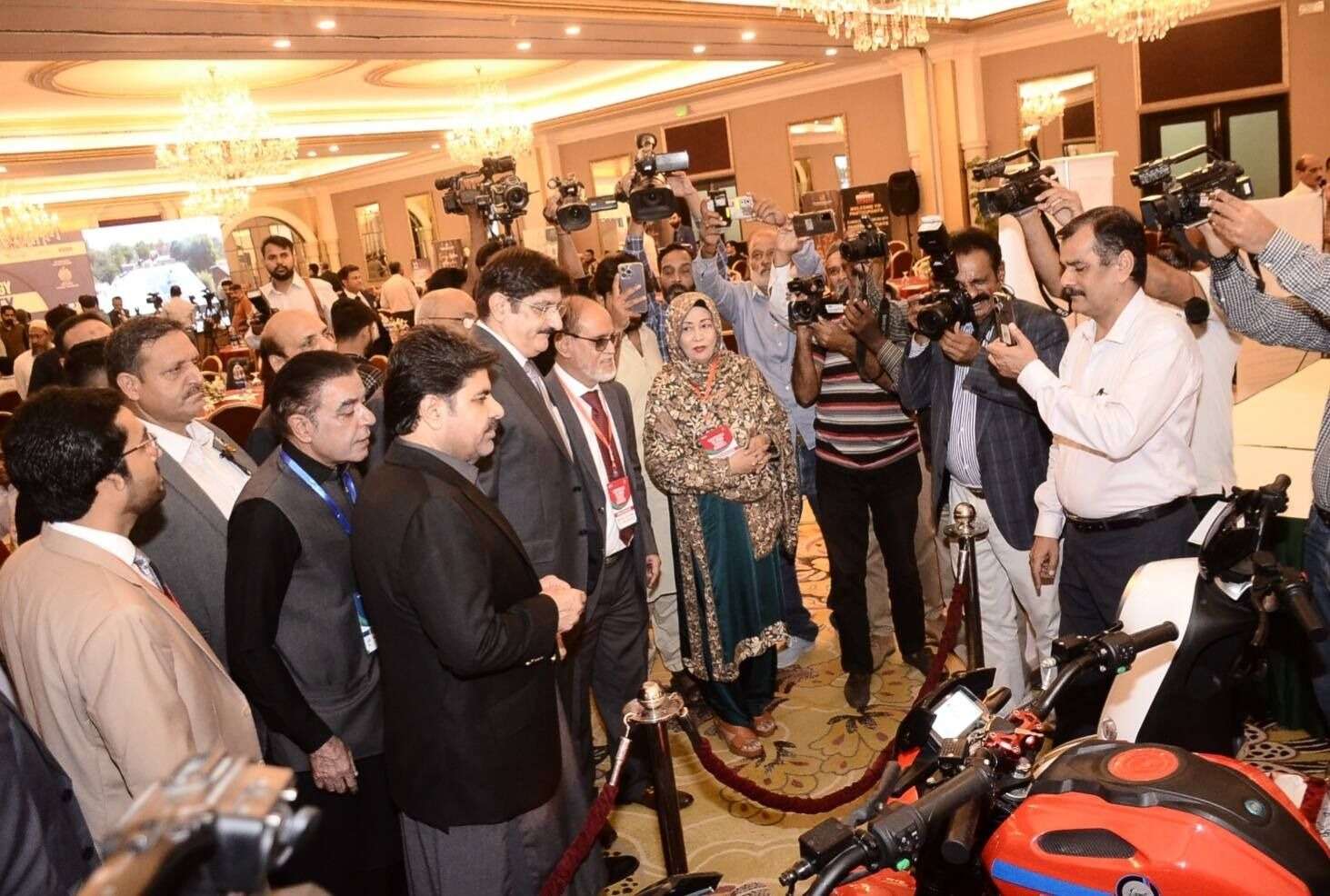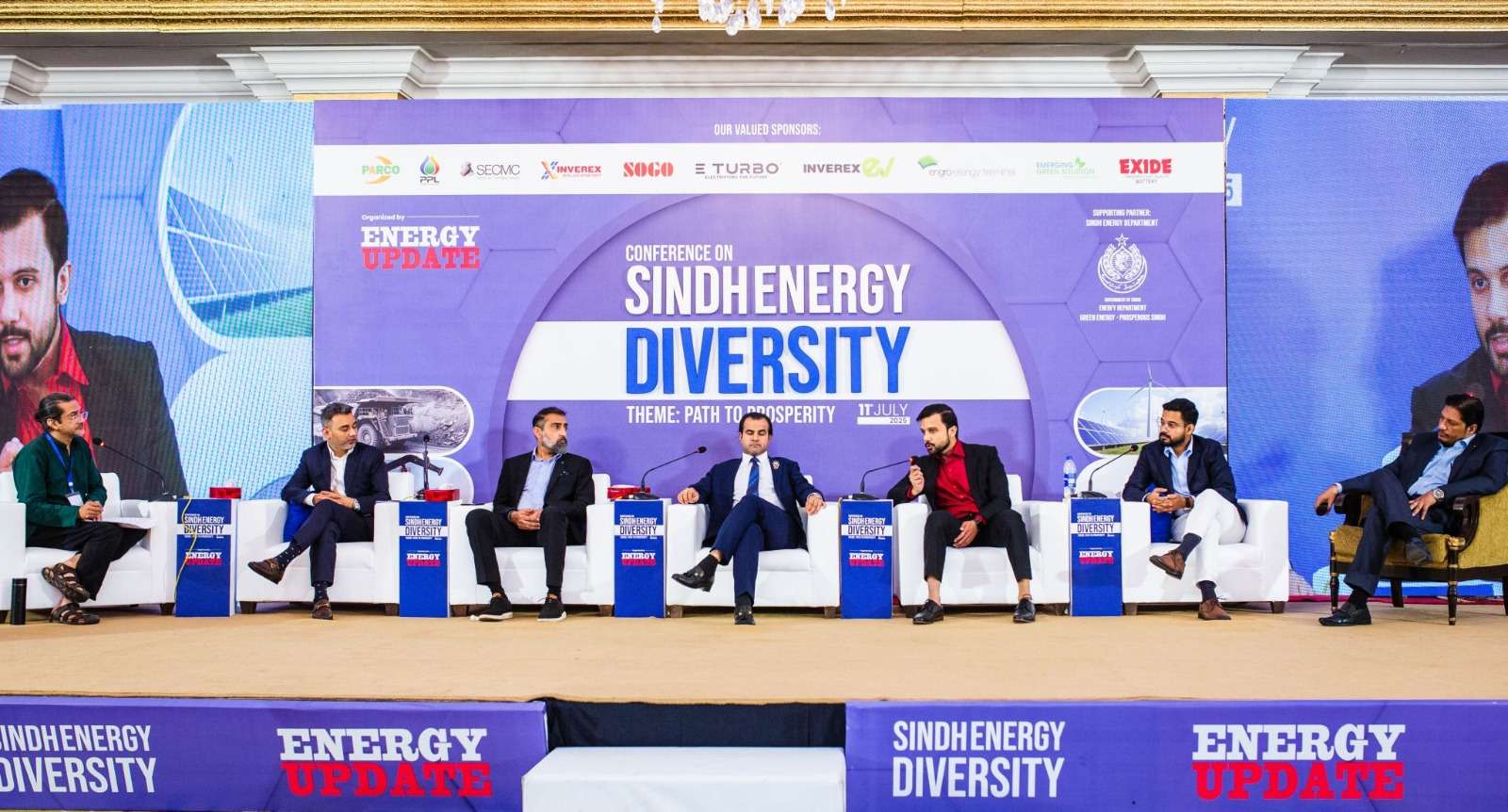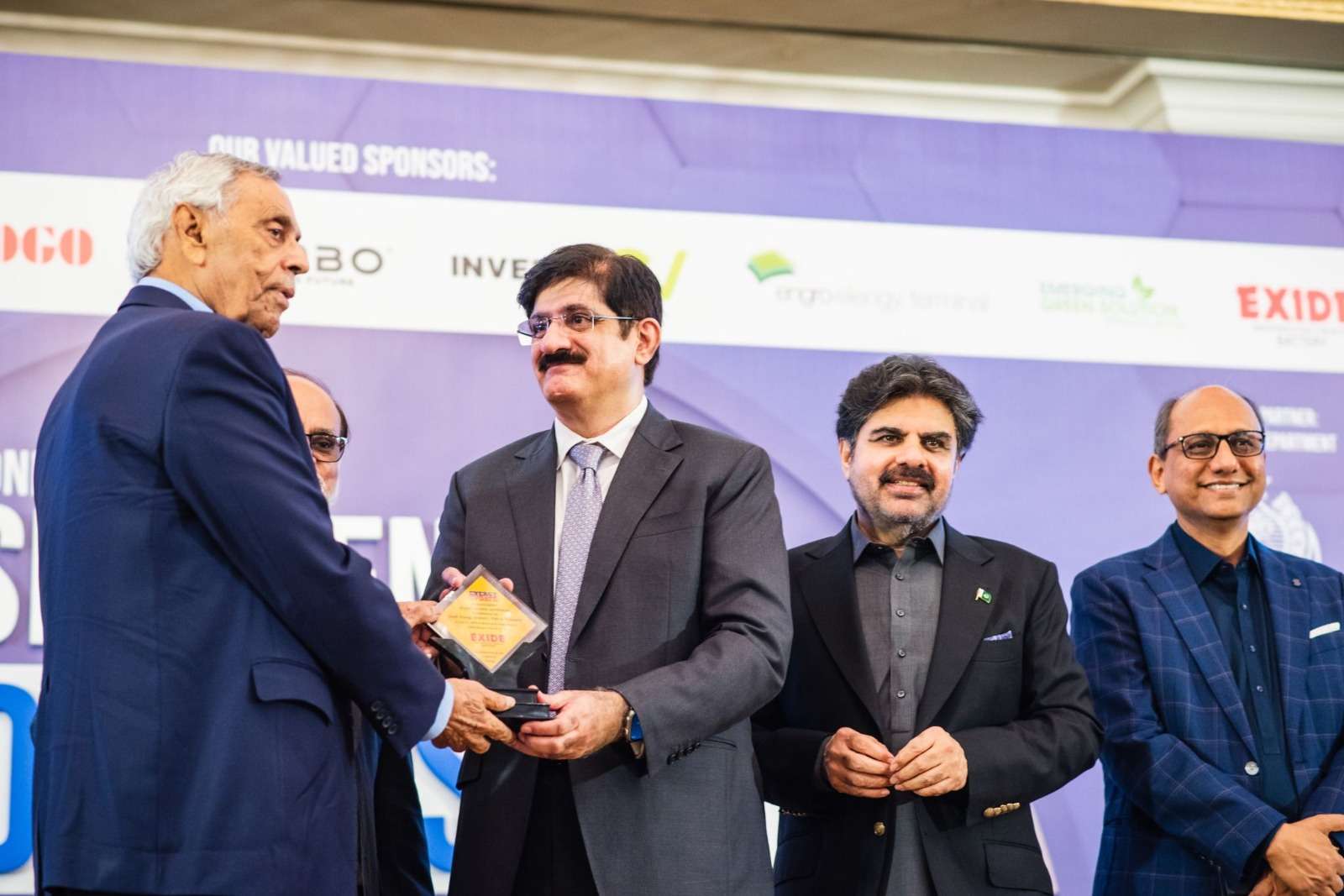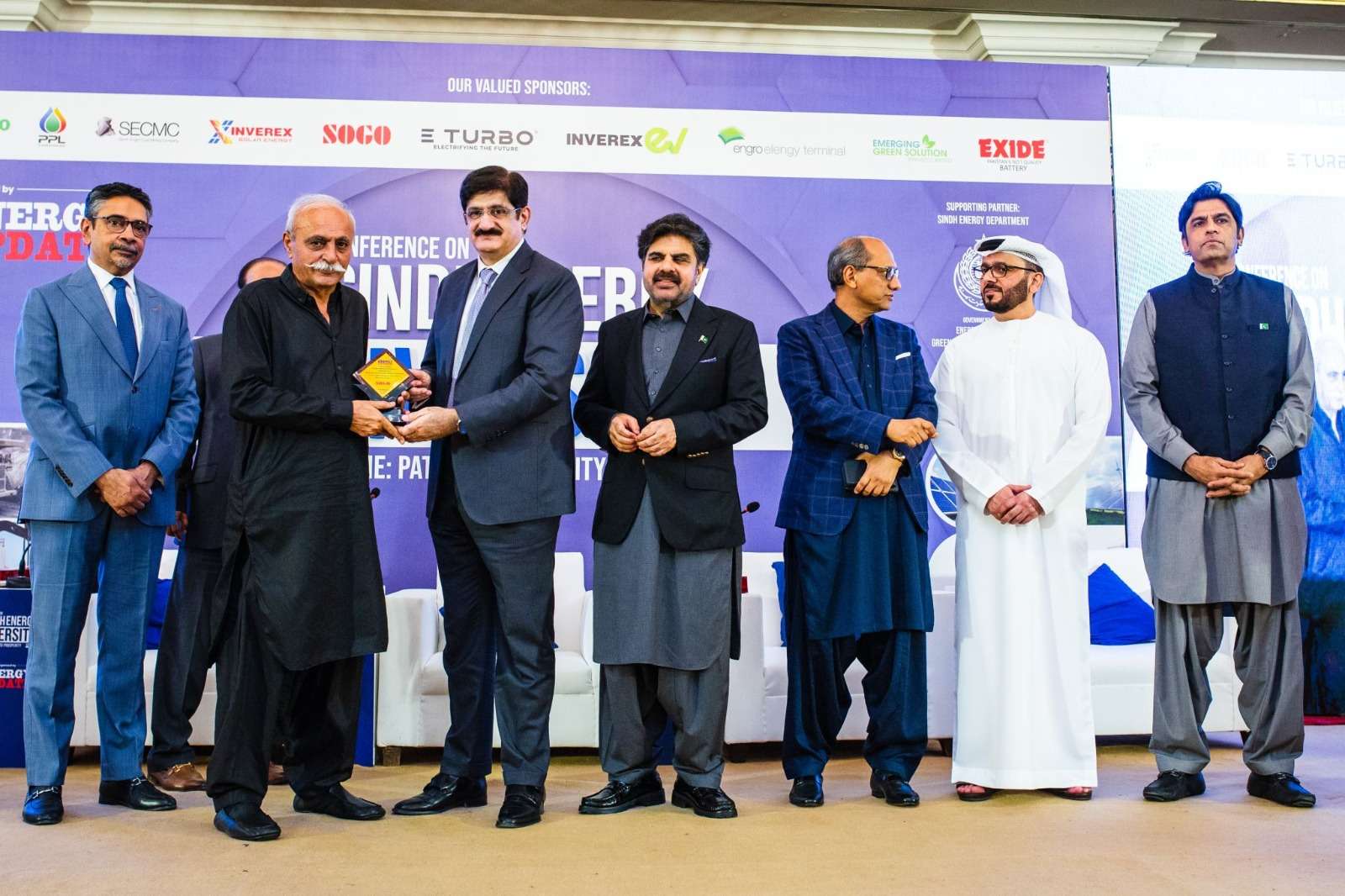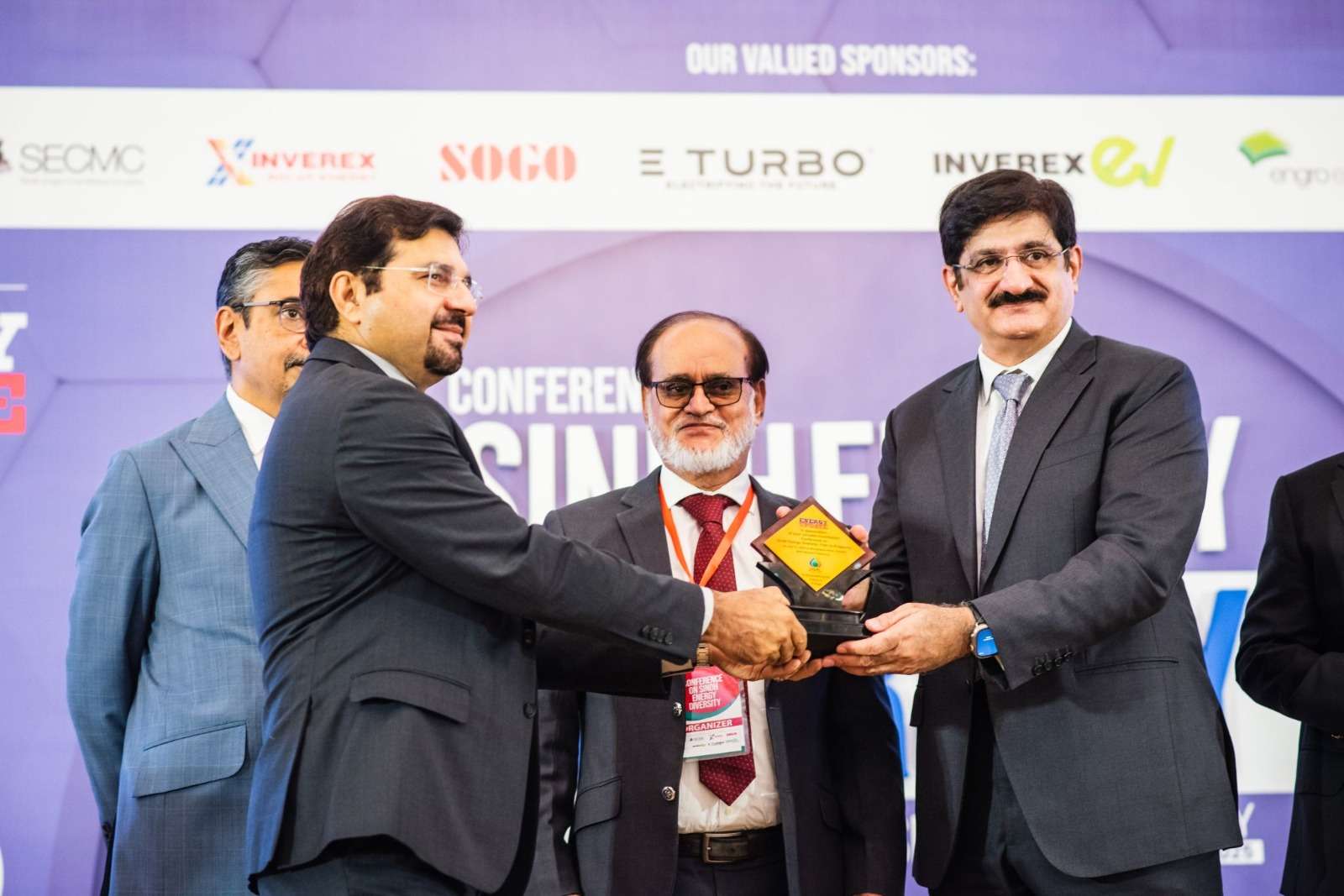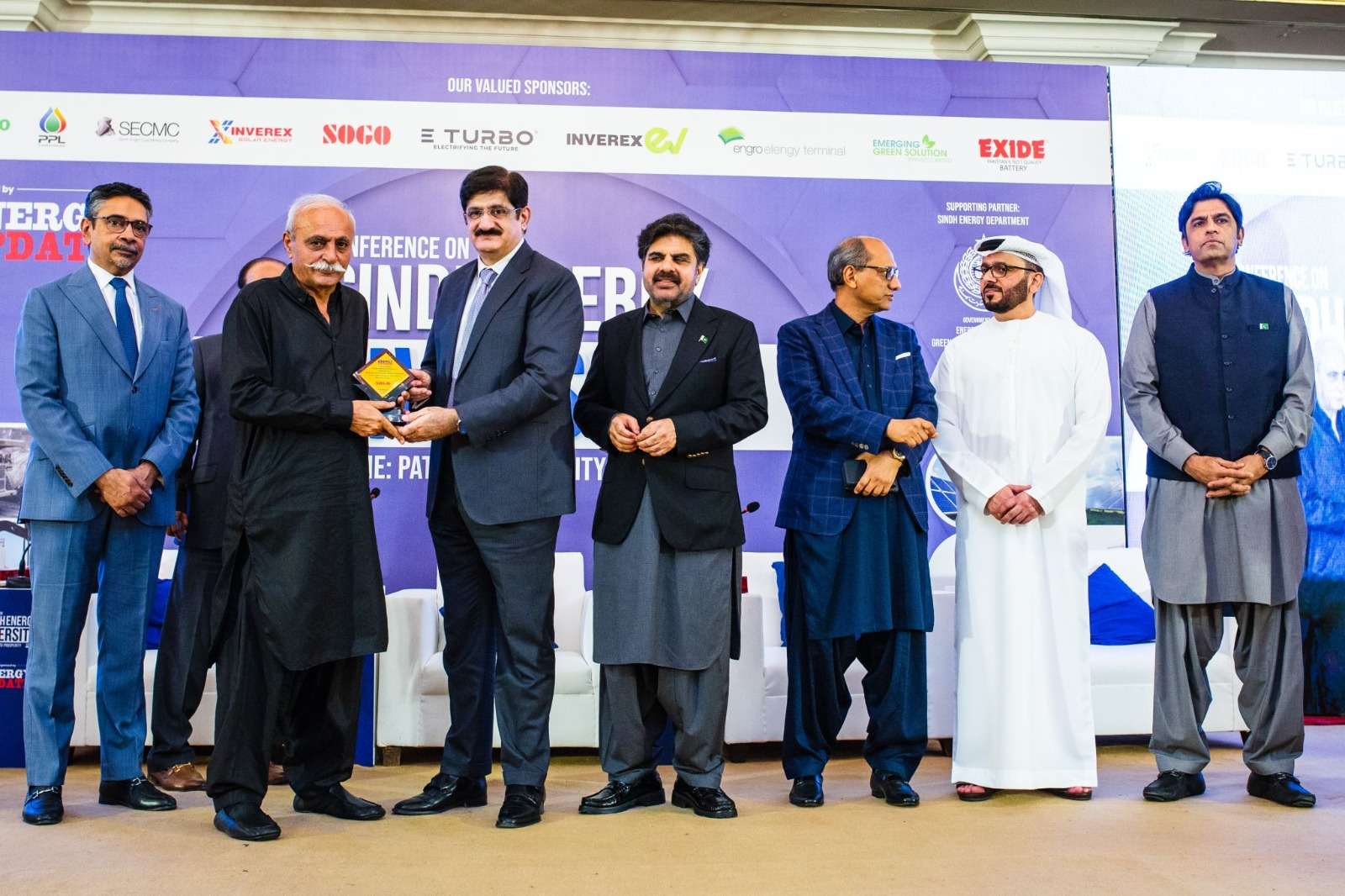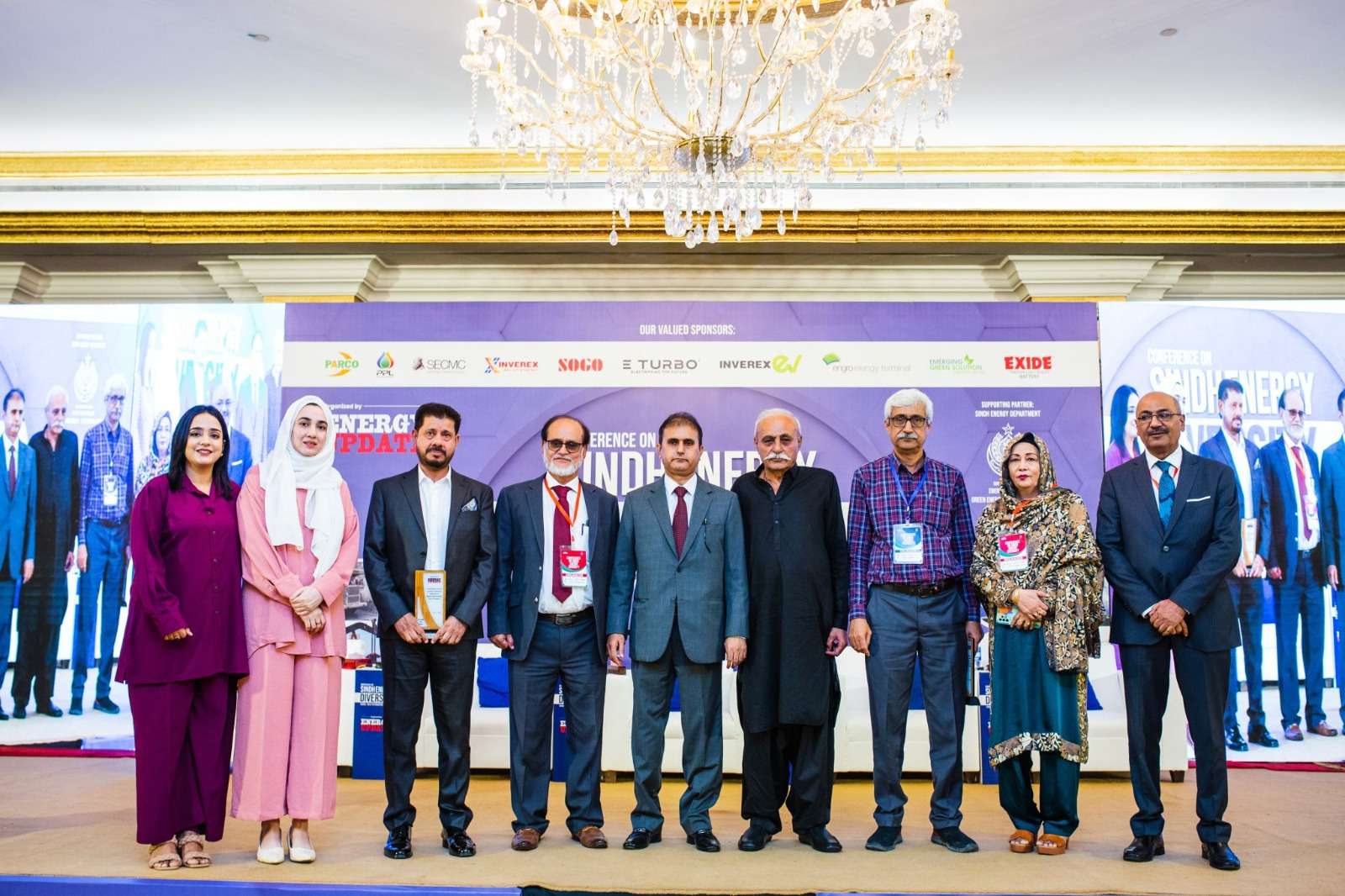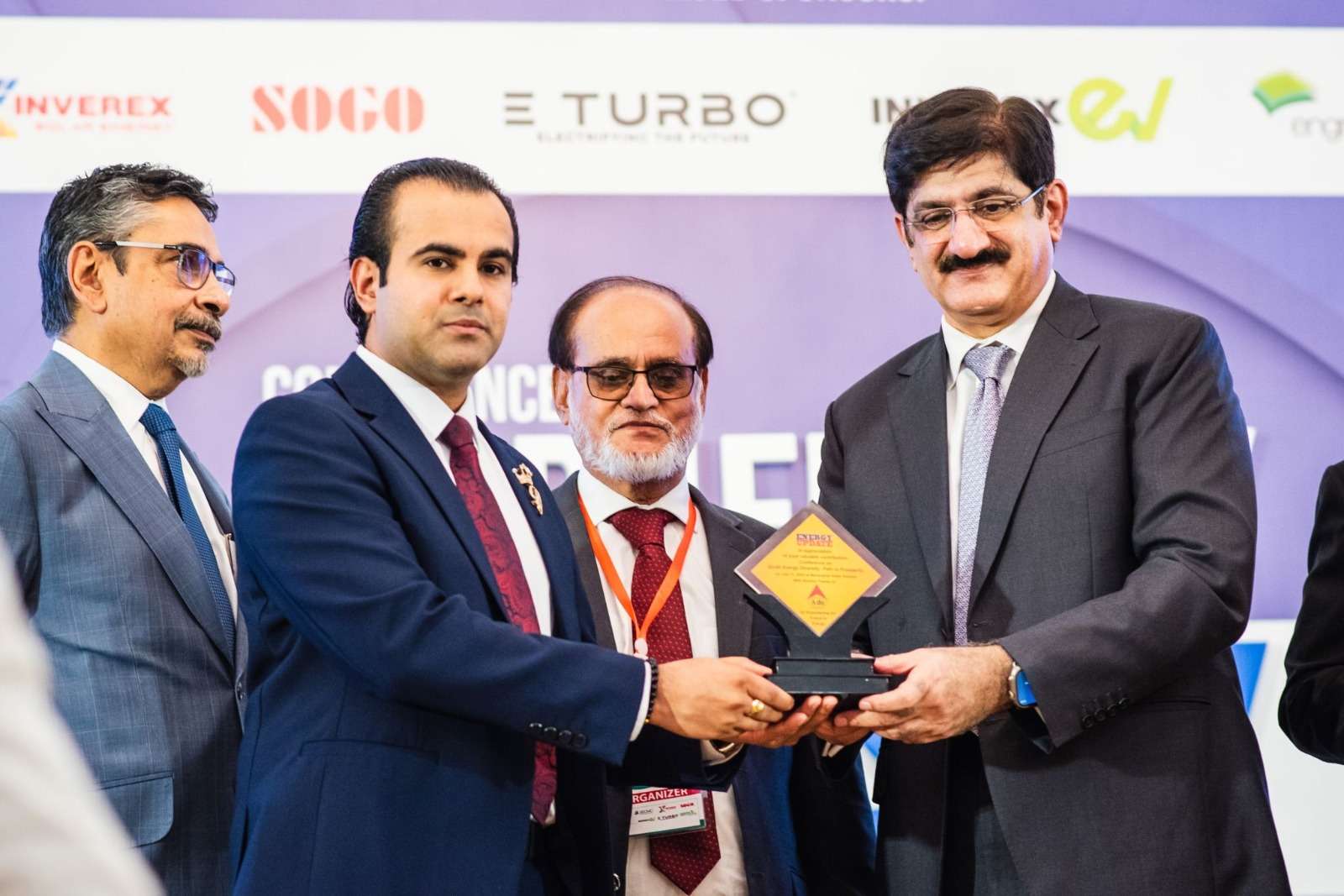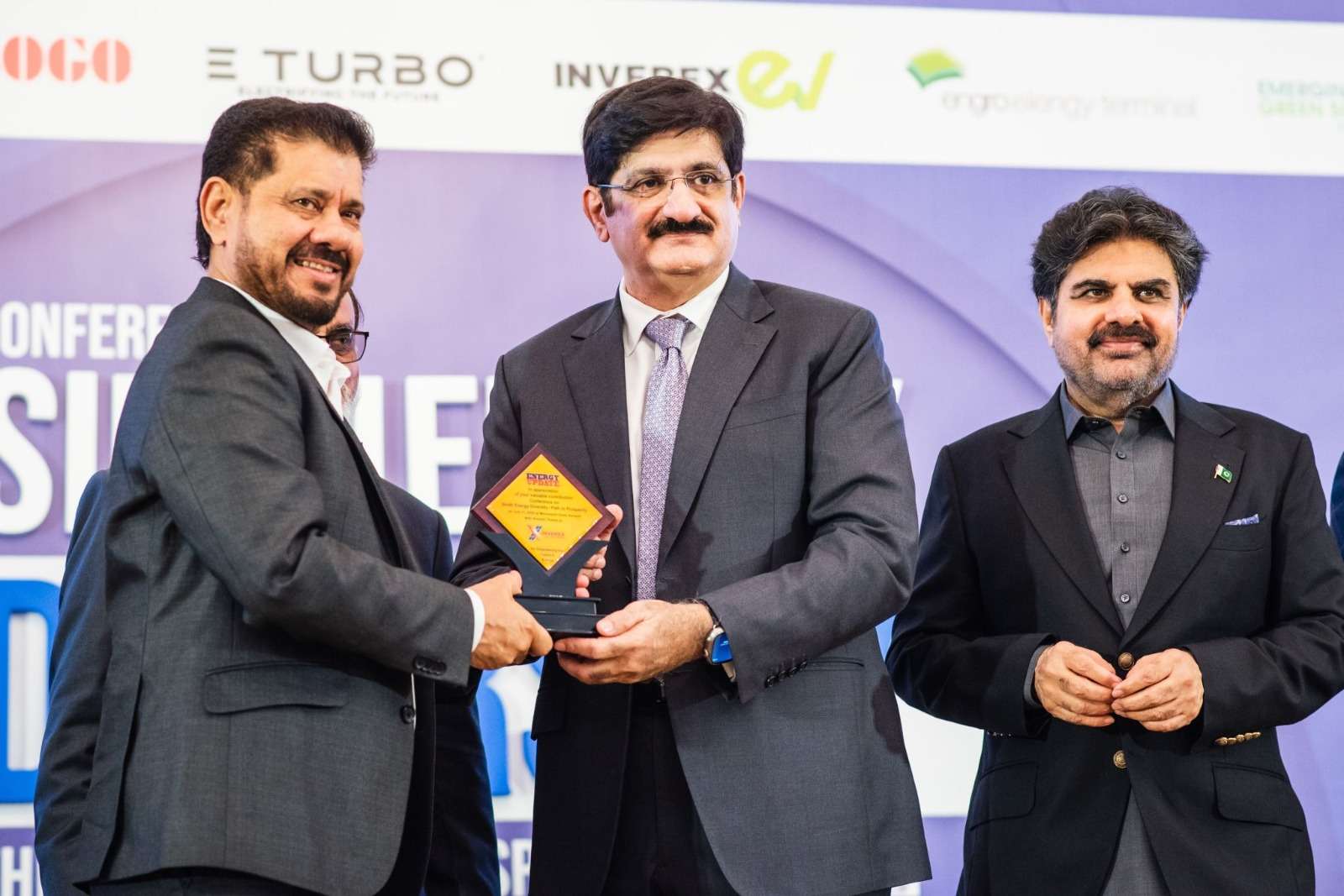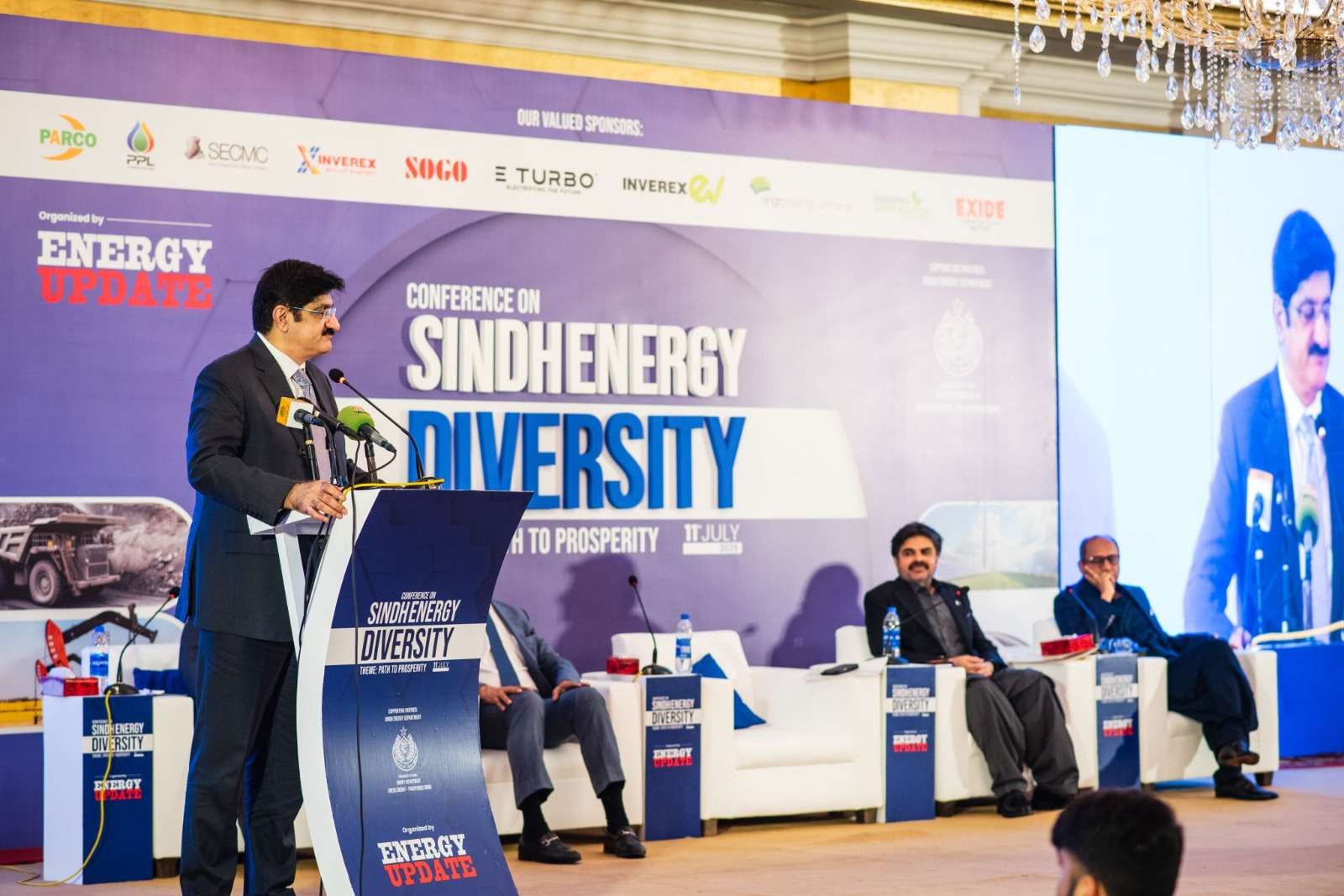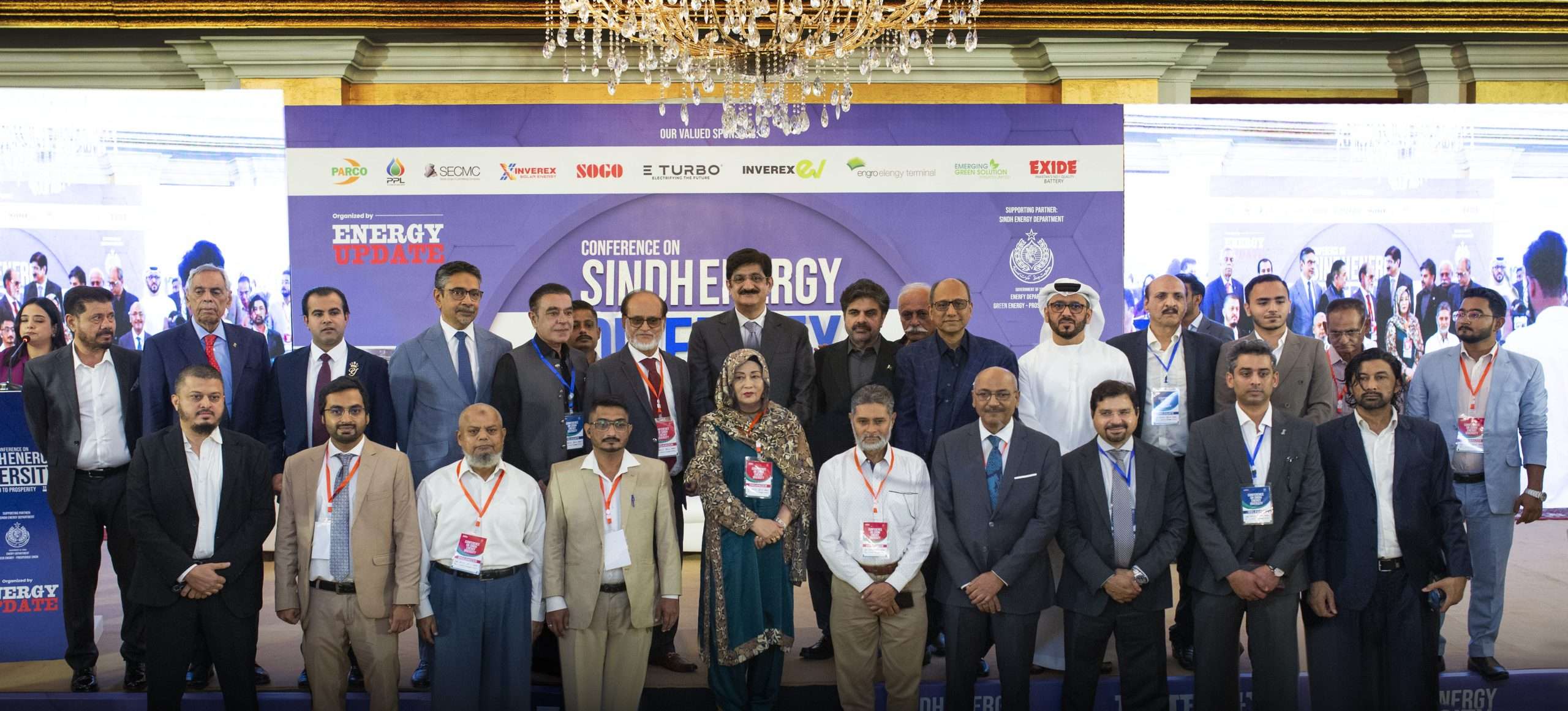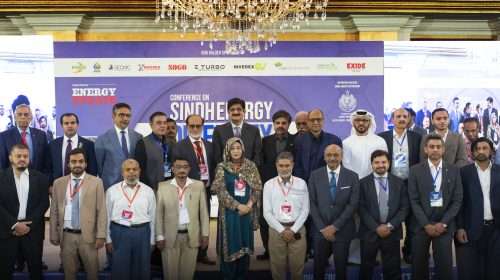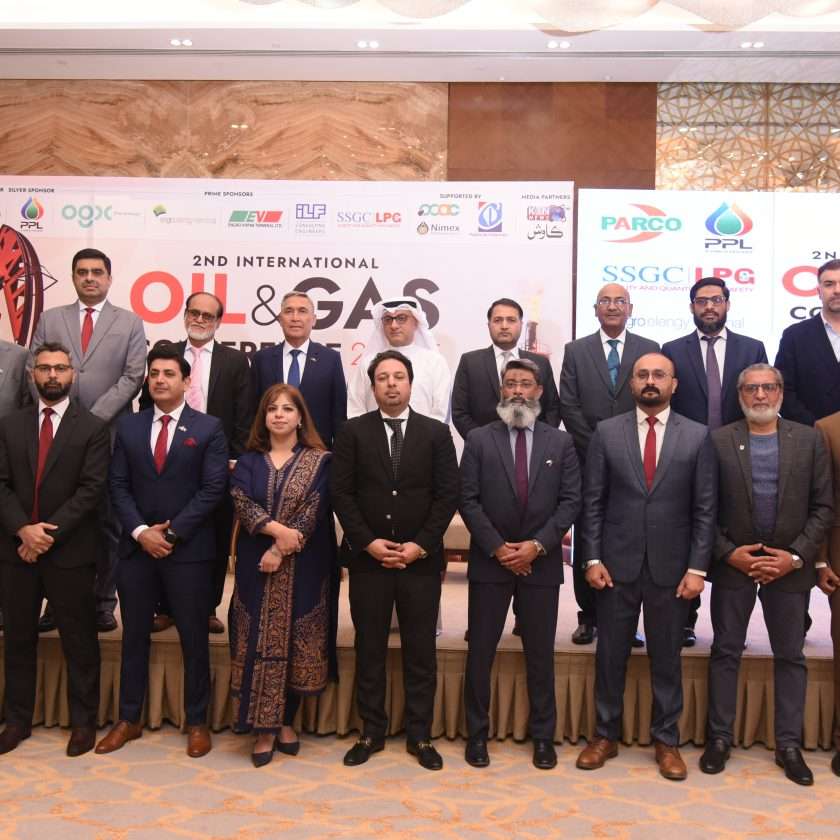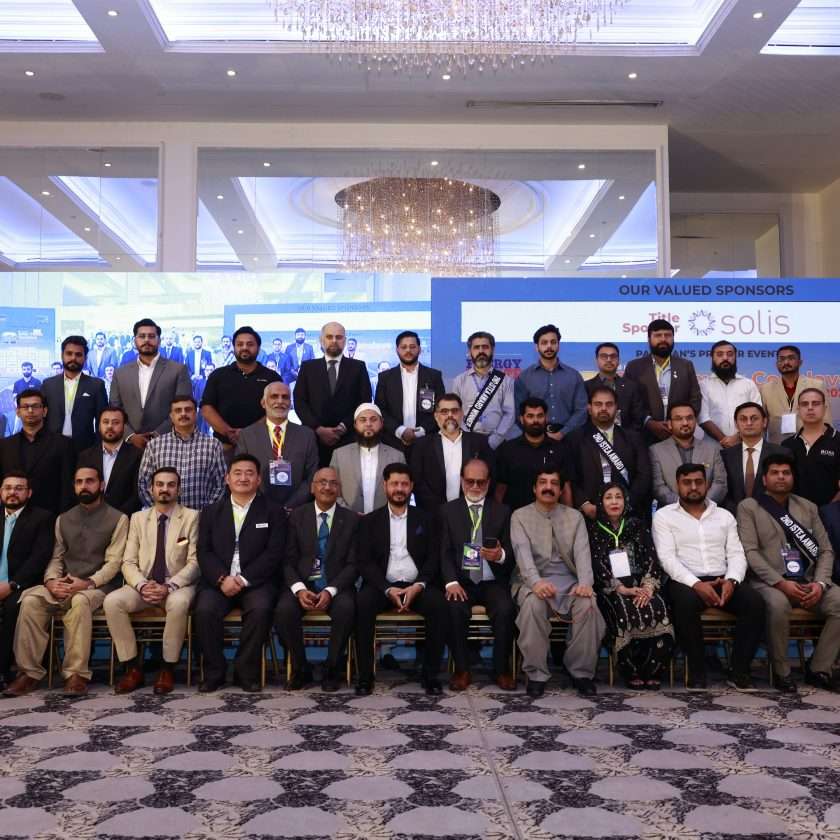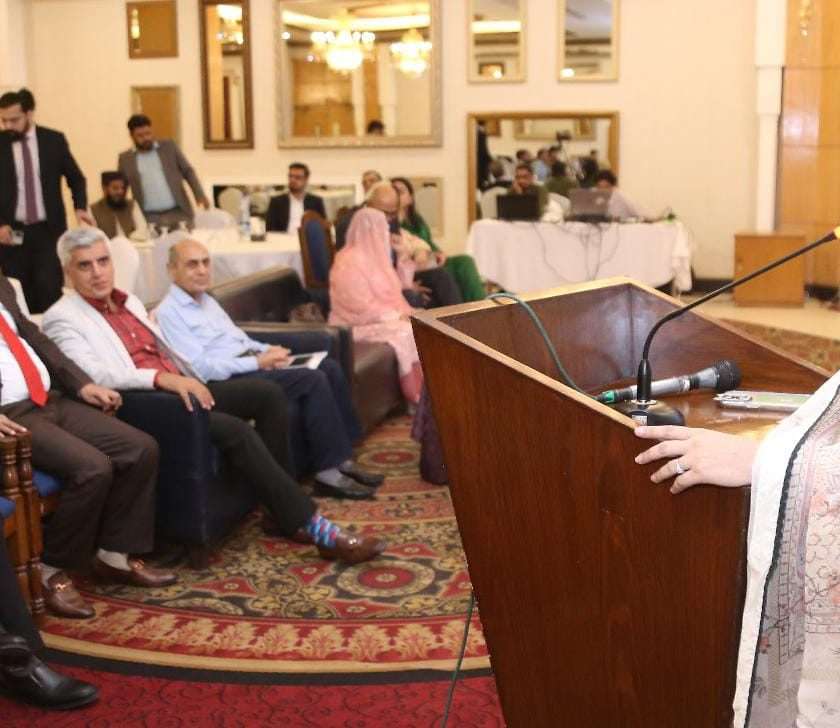Sindh’s Energy Riches Torpedoed by Policy Paralysis: Experts Demand Urgent Federal Action
The Sindh Energy Diversity Conference, jointly organised by the Sindh Energy Department and Energy Update magazine, emerged as a compelling platform that strongly criticised the federal government’s policies for obstructing the full utilisation of Sindh’s immense energy resources—particularly in renewables—and called for urgent structural reforms to transform Pakistan’s energy landscape.
Sindh Chief Minister Syed Murad Ali Shah, addressing the event as chief guest, delivered a powerful critique of the prevailing federal framework, which he said continuously hinders the exploitation of Sindh’s vast fossil fuel and renewable energy reserves for the benefit of the entire nation. He warned that while Sindh remains energy-rich—with abundant natural gas, oil, coal, solar, and wind potential—federal inertia, policy bottlenecks, and institutional constraints have turned this national advantage into a missed opportunity.
Held in Karachi, the day-long conference attracted energy experts, policymakers, private sector leaders, foreign investors, and government officials, all aligned in their call for federal cooperation to unlock Sindh’s full energy potential. The event underscored the province’s commitment to building a decentralised, self-reliant, and inclusive energy framework centred on sustainability and affordability.
The Sindh CM reaffirmed that over the past six years, Sindh has already supplied 30 million tonnes of Thar coal to Independent Power Producers (IPPs), generating 31 gigawatts of electricity—powering three million homes. He termed Thar coal a transformative national resource and announced a new 105-kilometre railway project to connect it with global markets—a development he described as “game-changing”.
Despite these milestones, Shah expressed frustration at recurring hurdles—citing past investor withdrawals due to regime changes and federal opposition to wind and solar initiatives. He pointedly criticised the rejection of Sindh’s offer to supply 100 megawatts from the Nooriabad power plant to the Hyderabad Electric Supply Company (Hesco), which claimed it already had enough electricity. “We created the Sindh Transmission and Dispatch Company (STDC) to overcome these hurdles,” he added, reaffirming the government’s resolve to act independently where necessary.
The CM also announced the establishment of the Sindh Electric Power Regulatory Authority (SEPRA), a significant move towards regulatory autonomy, enabling direct business-to-business (B2B) electricity supply, especially from clean energy projects to industries.
He highlighted the achievements in solar energy, including a Rs2.5 billion budgetary allocation for off-grid solutions and initiatives to pay power bills for 200 units for deserving households in Thar under PPP Chairman Bilawal Bhutto Zardari’s guidance.
Sindh Energy Minister Syed Nasir Hussain Shah echoed these sentiments, outlining a series of solar projects underway across Karachi, Manjhand, Sukkur, and Larkana. He confirmed that free solar systems are being distributed across the province and reiterated that industries are now transitioning to green energy. He called for complete federal backing to ensure that surplus clean energy in Sindh—particularly from the Gharo-Jhimpir wind corridor—is effectively utilised rather than wasted.
Participants at the conference unanimously demanded the removal of transmission bottlenecks that have long restricted evacuation of renewable power from Sindh. They stressed that it is irrational for renewable power plants to sit idle while the country suffers from high industrial tariffs, economic stagnation, and recurring blackouts.
A key recommendation from the forum was the urgent need for the federal government to provide an investor-friendly environment for foreign firms—especially Chinese companies—exploring opportunities in renewable energy. Ensuring security and long-term policy consistency were identified as critical enablers for sustained foreign direct investment in Pakistan’s clean energy sector.
Experts also called for a supportive tax regime and targeted incentives to promote the local manufacturing of renewable energy components—solar panels, inverters, wind turbines, and batteries—to reduce import dependency and create skilled jobs. This localised value chain would not only support Pakistan’s energy independence but also bolster economic resilience and innovation.
Amir Iqbal, CEO of Sindh Engro Coal Mining Company (SECMC), underlined the transformative impact of Thar coal, currently providing the cheapest electricity in Pakistan after hydropower and nuclear. He praised the Thar initiative as the most successful public-private partnership in the energy sector and a model for national replication.
He noted that 30 million tonnes of coal have been extracted from Thar and used by IPPs, and reaffirmed that Thar’s reserves are enough to meet Pakistan’s electricity needs for decades.
Importantly, the conference urged that the Thar Foundation’s work in uplifting local communities—through education, health care, and skill development—should be adopted as a national benchmark for Corporate Social Responsibility (CSR) across Pakistan’s energy sector. The model of inclusive development, where community uplift goes hand-in-hand with industrial progress, was endorsed as the ideal way forward.
Muhammad Zakir Ali, CEO of Inverex Solar Energy, made an emphatic plea for maintaining investor confidence, especially among Chinese partners. He stressed the need for robust policy continuity and institutional support to encourage clean energy uptake at both residential and industrial levels.
Earlier, Naeem Qureshi, Chairman of the organising committee, applauded the Sindh government’s pioneering work in developing Thar coal and harnessing the province’s clean energy resources under strong public-private partnerships. He credited the effective implementation of the 18th Constitutional Amendment for enabling Sindh to exercise vital autonomy in its energy policies for the benefit of end-consumers.
Qureshi emphasised that Sindh’s wind corridor alone could produce thousands of megawatts of clean electricity, and if fully harnessed, could lead Pakistan to energy self-reliance. He called upon regulators, academics, technocrats, and investors to join forces in formulating a long-term, sustainable roadmap for Sindh’s energy future.
Engr. Irfan Ahmed, Energy Expert, Mr. Khalique Jaffrani, Chairman, SOGO Group, Ms. Ayesha Ahmed, Mr. Tariq Ali Shah MD Thar Coal & Energy Board, Khawaja Nizam Ud Din Mir, Manager Business Development, FFC Energy, Tufail Khoso COO Sindh Energy Holding Company, Dr. Nazir Abbas Zaidi Secretary OCAC, Muhammad Imtiaz, Director, Applied Systems Analysis Directorate, Yasir Hussain, Climate Action Plan, Abdur Rehman, Chief Trade Officer, Inverex EV, Rizwan Jafrani, Director – SOGO GROUP, Yasir Bhambhani, CEO, ADM Group China, Noman Alvi EVEE, Osama Shaikh CEO, E-Turbo and others also spoke on this occasion.
Towards the conclusion of the conference, the following five additional recommendations were strongly endorsed:
The government should fully utilise idle power plants, especially in the renewable energy sector, to supply additional electricity at subsidised rates to enhance industrial growth, productivity, and job market in Pakistan for the good of its economy.
The government should facilitate the development of necessary infrastructure to promote the electric vehicle (EV) market in Pakistan. This shift is seen as essential to curbing harmful fossil fuel emissions from motor vehicles and achieving long-term climate resilience.
Other provinces in Pakistan should follow the example set by Sindh in establishing pioneering entities such as STDC and SEPRA. These institutions represent important strides in securing greater provincial autonomy in energy governance—particularly in clean electricity—for the ultimate benefit of end-consumers.
The government must launch large-scale skill education and technical training programmes to prepare a qualified local workforce for deployment in Sindh’s expanding clean energy sector, ensuring inclusive growth and sustainable employment opportunities.
The federal and provincial governments should speed up the drives aimed at greater application of solar energy systems to energise off-grid homes in underprivileged communities and public sector buildings as the best use of clean power potential of Pakistan.
The conference concluded with a unified resolve to push for greater policy coherence, institutional coordination, and dynamic public-private partnerships, placing clean energy at the heart of Pakistan’s industrial revival and climate ambitions.
